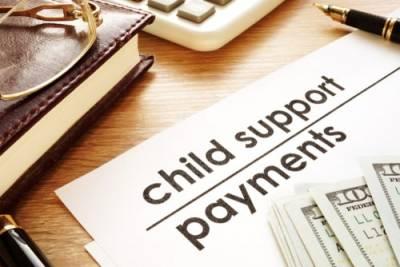Recent Blog Posts
Does Remarriage Affect Child Support or Spousal Maintenance in Illinois?
 When a couple gets divorced, one of the parties may be subject to a child support or spousal support order. These court orders are legally-binding and must be obeyed. However, there are situations that can change child support and spousal support orders. One of these situations is the remarriage of either spouse. If you are divorced and your or your spouse is getting remarried, it is important to know how the remarriage could affect child support and spousal maintenance.
When a couple gets divorced, one of the parties may be subject to a child support or spousal support order. These court orders are legally-binding and must be obeyed. However, there are situations that can change child support and spousal support orders. One of these situations is the remarriage of either spouse. If you are divorced and your or your spouse is getting remarried, it is important to know how the remarriage could affect child support and spousal maintenance.
Spousal Maintenance Terminates Upon the Recipient’s Remarriage
Spousal maintenance, also referred to as spousal support or alimony, is intended to provide financial aid to a spouse who suffers financial harm due to divorce. Some spousal maintenance obligations are temporary while others are indefinite. If the recipient of spousal support gets remarried, his or her entitlement to maintenance payments automatically terminates. If the paying spouse made payments after the remarriage, he or she is entitled to reimbursement for those payments.
Issues You May Encounter in a High Net Worth Divorce
 When most couples get married, they are thinking about the personal and romantic significance of their commitment. They are much less concerned with the financial implications of marriage. However, when spouses enter into a marriage, they merge many of their assets and debts. Undoing this financial entanglement during divorce becomes especially complicated if spouses have a high income or own high-value assets. If you or your spouse have greater than average wealth, you should know about the ways that your wealth may influence your divorce case.
When most couples get married, they are thinking about the personal and romantic significance of their commitment. They are much less concerned with the financial implications of marriage. However, when spouses enter into a marriage, they merge many of their assets and debts. Undoing this financial entanglement during divorce becomes especially complicated if spouses have a high income or own high-value assets. If you or your spouse have greater than average wealth, you should know about the ways that your wealth may influence your divorce case.
Complex Assets and Hard-To-Value Property
The division of marital property is often one of the most challenging aspects of divorce. Complex assets, hard-to-value assets, and assets with fluctuating value are often especially difficult to account for during divorce. Special attention must be paid to assets such as:
- Businesses and business investments
What Are My Options if My Ex Is Not Obeying Our Parenting Plan?
 In Illinois, parents who divorce must create a “parenting plan” that describes each parent’s rights and responsibilities. If the parents cannot reach an agreement about the provisions in the parenting plan, the court will hear arguments from both sides and then issue a parenting plan based on what the court thinks is in the child’s best interests. If your ex is not following your parenting plan, you may be frustrated and annoyed. You may wonder what you can do to make your spouse comply with the terms set forth in the plan.
In Illinois, parents who divorce must create a “parenting plan” that describes each parent’s rights and responsibilities. If the parents cannot reach an agreement about the provisions in the parenting plan, the court will hear arguments from both sides and then issue a parenting plan based on what the court thinks is in the child’s best interests. If your ex is not following your parenting plan, you may be frustrated and annoyed. You may wonder what you can do to make your spouse comply with the terms set forth in the plan.
Do the Other Parent’s Actions Constitute a Violation of the Parenting Plan?
Divorced couples who share custody of children have the unenviable responsibility of remaining in each other’s lives for the sake of their children. Your ex may forget about responsibilities, drop off children late, or make other mistakes that lead to unnecessary frustrations in your life. While this can certainly be annoying, not every mistake is considered a violation of the parenting plan. Recently, COVID-19 lockdowns have caused many parents to be unable to carry out some of the responsibilities contained in their parenting agreement. If a parent makes an honest mistake regarding the parenting time schedule or unintentionally disobeys the parenting plan, the best way to deal with the situation may be to talk with him or her about potential solutions. You may consider requesting a modification to your parenting plan and changing the plan so that works better for your unique situation.
How Can Forensic Accounting Benefit Me During My Illinois Divorce?
 When two people get married they merge their financial lives in such a way that dividing assets and debts prove quite difficult during divorce. Property division during divorce is further complicated when the couple owns complex assets, has a particularly high income, or when a spouse refuses to be honest about his or her finances. The spouses’ financial situations will also have a dramatic impact on child support, spousal support, and other elements of the divorce. Forensic accounting may help divorcing spouses trace marital assets and debts, reveal hidden assets and income, determine how much money is available for support payments, and much more.
When two people get married they merge their financial lives in such a way that dividing assets and debts prove quite difficult during divorce. Property division during divorce is further complicated when the couple owns complex assets, has a particularly high income, or when a spouse refuses to be honest about his or her finances. The spouses’ financial situations will also have a dramatic impact on child support, spousal support, and other elements of the divorce. Forensic accounting may help divorcing spouses trace marital assets and debts, reveal hidden assets and income, determine how much money is available for support payments, and much more.
How a Forensic Accountant May Help During Divorce
Divorce lawyers often utilize the expertise of a forensic accountant when complicated financial circumstances or financial deception confound the divorce process. Forensic accounting is often used when a married couple owns a business or professional practice or other complex assets like stocks and stock options, retirement funds, cryptocurrency, or real estate.
Am I Required to Pay Alimony in an Illinois Divorce If I Make More Than My Spouse?
 Divorce can bring about complicated financial questions. One issue that many divorcing individuals have questions about is alimony. Alimony or spousal support is referred to as spousal maintenance in Illinois law. Often, spousal maintenance is used to help a spouse who is financially dependent on the other spouse transition into being financially self-supporting after a divorce. In some situations, spousal maintenance is permanent. If you earn a higher income than your spouse or your spouse does not work outside the home, it is possible that you will be required to pay maintenance.
Divorce can bring about complicated financial questions. One issue that many divorcing individuals have questions about is alimony. Alimony or spousal support is referred to as spousal maintenance in Illinois law. Often, spousal maintenance is used to help a spouse who is financially dependent on the other spouse transition into being financially self-supporting after a divorce. In some situations, spousal maintenance is permanent. If you earn a higher income than your spouse or your spouse does not work outside the home, it is possible that you will be required to pay maintenance.
When is Spousal Maintenance Awarded in Illinois?
If you and your spouse signed a prenuptial agreement that requires you to pay spousal maintenance following divorce, the court will most likely uphold this requirement. However, if there are issues that invalidate the prenuptial agreement, the maintenance agreement may not be legally binding. If you have not agreed to pay maintenance through a prenuptial agreement or postnuptial agreement, the court has discretion when it comes to ordering maintenance. If your spouse files a petition for spousal maintenance, the court will consider a range of factors to determine if maintenance is appropriate. The court will look at:
How Can Family Law Mediation Help a Couple Resolve Conflicts During Divorce?
 Many people assume that the decision to end their marriage is the most difficult part of divorce. Unfortunately, many divorcing spouses find that reaching an agreement about the terms of their divorce is just as challenging. When divorcing spouses disagree about child custody, property and debt division, alimony, and other aspects of their divorce, they have several options. One of these options is to attend family law mediation and work with a specially-trained mediator in an effort to reach a resolution. However, mediation is not effective or even appropriate in every case.
Many people assume that the decision to end their marriage is the most difficult part of divorce. Unfortunately, many divorcing spouses find that reaching an agreement about the terms of their divorce is just as challenging. When divorcing spouses disagree about child custody, property and debt division, alimony, and other aspects of their divorce, they have several options. One of these options is to attend family law mediation and work with a specially-trained mediator in an effort to reach a resolution. However, mediation is not effective or even appropriate in every case.
What Happens During Mediation?
Reaching an agreement about divorce issues is often the biggest obstacle divorcing spouses must overcome. When a divorcing couple cannot reach a decision on their own, they may choose to go to mediation. Family law mediation may also be ordered by a judge. During mediation, the couple works with a neutral third party called a mediator. The mediator does not choose one spouse’s side over the other or tell the couple how to resolve their differences. The mediator’s role is instead to help guide the conversations and negotiations so that they are as productive as possible. The mediator may help the couple stay focused on the task at hand and avoid arguing about unrelated issues. The mediator may point out any common ground that the spouses share and suggest potential compromises. However, reaching an agreement is ultimately up to the spouses themselves. Many spouses find that this extra assistance is what they need to reach an out-of-court agreement and avoid divorce litigation.
What Is a Temporary Relief Order in an Illinois Divorce?
 Typically, the more complicated a divorce, the longer it will take to resolve. If you and your spouse disagree on the division of marital property and debt, allocation of parental responsibilities and parenting time, spousal maintenance, or other divorce terms, it is likely that this will increase the amount of time it takes to finalize the divorce. Complex assets such a family business or certain investments may also increase the duration of the divorce. Fortunately, you may be able to receive temporary relief orders from the court that address immediate concerns during the divorce process.
Typically, the more complicated a divorce, the longer it will take to resolve. If you and your spouse disagree on the division of marital property and debt, allocation of parental responsibilities and parenting time, spousal maintenance, or other divorce terms, it is likely that this will increase the amount of time it takes to finalize the divorce. Complex assets such a family business or certain investments may also increase the duration of the divorce. Fortunately, you may be able to receive temporary relief orders from the court that address immediate concerns during the divorce process.
Temporary Court Orders for Financial Issues and Child Custody Concerns
At the conclusion of a divorce, the divorce decree will describe the terms of the divorce. The decree may contain directions for child support, the division of debt and property, spousal maintenance, and/or child custody which the spouses are expected to follow. However, you may not have to wait until the divorce is finished to receive court orders about these issues. A temporary relief order may address which spouse lives in the marital home during the divorce process, spousal maintenance, marital property, child custody, child support, and health insurance.
An Overview of the Illinois Adoption Process
 Expanding your family through adoption can be one of the most rewarding choices you ever make. However, it is important to remember that adoption is a complex legal procedure. This is why individuals wishing to adopt are highly encouraged to work with an experienced adoption lawyer. Your lawyer can explain what is expected of you and can help you avoid obstacles that will hinder the adoption process. The type of adoption you are pursuing will determine the specific steps you will need to take in order to add a child into your family, however, there are some aspects of adoption that are the same for all Illinois adoptions.
Expanding your family through adoption can be one of the most rewarding choices you ever make. However, it is important to remember that adoption is a complex legal procedure. This is why individuals wishing to adopt are highly encouraged to work with an experienced adoption lawyer. Your lawyer can explain what is expected of you and can help you avoid obstacles that will hinder the adoption process. The type of adoption you are pursuing will determine the specific steps you will need to take in order to add a child into your family, however, there are some aspects of adoption that are the same for all Illinois adoptions.
Eligibility Requirements
In order to adopt a child in the state of Illinois, you must meet certain criteria. Typically, you must be 18 years old or older to adopt. The court may make exceptions to this requirement in some cases. Unless you are planning to adopt a relative, you must also have lived in Illinois for at least six months. The residency requirement is reduced to 90 days for those in the military. If you are pursuing any type of adoption other than a relative adoption, you will also need to pass a criminal background check.
Considerations to Keep in Mind When Leaving Your Spouse for Someone Else
 We cannot control when we meet the man or woman of our dreams. Sometimes, a married individual meets someone else and decides to leave his or her spouse for their new partner. If you are planning to divorce your spouse and begin a new relationship with someone else, you may wonder how this situation will influence your divorce proceedings. There are several ways that a new romantic partner can affect your divorce – legally and personally – so obtaining legal guidance from an experienced divorce attorney is highly recommended in this situation.
We cannot control when we meet the man or woman of our dreams. Sometimes, a married individual meets someone else and decides to leave his or her spouse for their new partner. If you are planning to divorce your spouse and begin a new relationship with someone else, you may wonder how this situation will influence your divorce proceedings. There are several ways that a new romantic partner can affect your divorce – legally and personally – so obtaining legal guidance from an experienced divorce attorney is highly recommended in this situation.
Dissipation of Assets
Illinois is a no-fault divorce state. This means that there are not fault-based grounds for divorce. Marital infidelity does not automatically influence an individual’s divorce settlement. However, there are ways that your extramarital relationship can significantly impact your divorce. Dissipation of assets occurs when a married person uses funds or property on a purpose not related to the marriage while the marriage is undergoing a “breakdown.” If you spent a substantial amount of money on your new boyfriend or girlfriend at the end of your marriage, your spouse may file a dissipation claim against you and you may be required to reimburse him or her for the funds you spent on your new partner.
Recognizing the Signs of Financial Abuse and Preparing for Divorce
 Arguments about finances are common among married couples. However, there are some situations in which money becomes a tool that an abusive spouse uses to control and manipulate the other spouse. Financial abuse is not discussed as frequently as physical abuse, but the consequences of financial abuse can be just severe as physical violence. If you have been a victim of financial abuse and are planning to end your marriage, you should know about the ways that financial abuse can impact your divorce.
Arguments about finances are common among married couples. However, there are some situations in which money becomes a tool that an abusive spouse uses to control and manipulate the other spouse. Financial abuse is not discussed as frequently as physical abuse, but the consequences of financial abuse can be just severe as physical violence. If you have been a victim of financial abuse and are planning to end your marriage, you should know about the ways that financial abuse can impact your divorce.
When Control Over Money Crosses the Line
Many people like to keep track of their income and expenses, stick to a budget, and have tight control over their finances. However, there are times when control over finances becomes abusive. Financial abuse is typically defined as controlling a person’s ability to obtain, use, or save money or property. It may also involve stealing or withholding funds or property from the rightful owner. Some signs that you may be a victim of financial abuse at the hand of your spouse include:

 630-584-5550
630-584-5550







 630-584-5550
630-584-5550